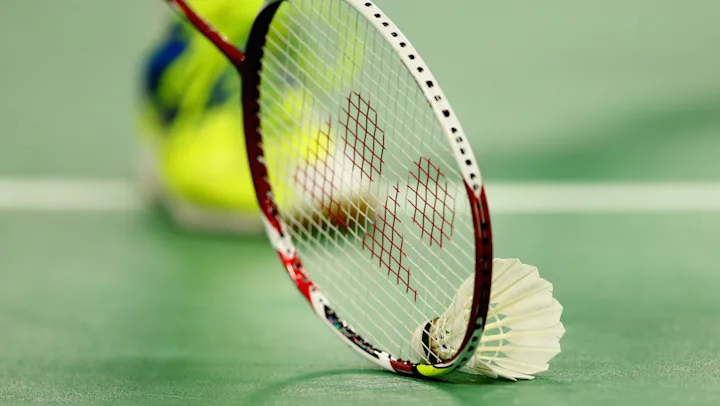What the Badminton manufacturer Yonex new racquet factory tells us about the company and India.

The players who took India to another level, in terms of Badminton.
- It took until 1980 for India to produce its first badminton world champion, Prakash Padukone, who won the All-England title, regarded as the informal world championship, even before International Badminton Federation’s official world championships were introduced.
- Pullela Gopichand would become the 2nd Indian to win the All-England title two decades later.
- However, India has been producing champions on a production line ever since. Both Saina Nehwal and P.V. Sindhu were ranked No. 1 in the world, and Sindhu won the world championships.
- Kidambi Srikanth and Lakshya Sen have emerged as world beaters in men’s tennis.
- And, last year, India made history by winning the Thomas Cup, the world team championships, defeating badminton superstar, and 14-time Thomas Cup winner Indonesia.
The growing dominance of Indian players in the field of Badminton.
Indian players’ growing dominance has ignited huge public enthusiasm for the game, in both terms of participants and followers. India operates its own Premier Badminton League, which is now in its sixth season and brings the world’s best shuttle players to the country. In addition, there are up to 250 prize-money tournaments held each year.

This has resulted in an increase in the demand for shuttle badminton equipment, with global badminton equipment manufacturers flocking to India. Furthermore, where there are fans, there are investments.
Yonex, a Japanese sports goods manufacturer, is making investments in a 2nd manufacturing facility in India solely for the production of badminton racquets. The business is already operating a plant in the vicinity of Bengaluru. It was founded in 2016 and produces approximately 800,000-900,000 aluminum T-joint racquets for beginners and amateur players of the sport.
Even as Yonex anticipates a 15-20% revenue increase and plans to increase capacity at the first plant to 2.5-3 million racquets, the second plant will be dedicated solely to producing higher, all-graphite jointless racquets used by serious players and professionals. Ben Yoneyama, president of Yonex Japan, stated during a media briefing to announce the investment that India doing the “unimaginable” by winning the Thomas Cup was the impetus for considering high-end production equipment in India.
Yonex has been providing players with the tools they need to succeed on the court for almost 60 years by blending traditional Japanese craftsmanship with cutting-edge technology.

Of course, the move by Chinese rival Li Ning, who enticed both of Yonex’s top brand ambassadors, Sindhu and Kidambi Srikanth, with lucrative sponsorship deals, would have been an added incentive. Li Ning somehow doesn’t manufacture racquets in India, but it does source a few sports clothing from the country.
The role of achievements in accepting Badminton like other famous sports.
The point is that, similar to cricket, increasing achievement at the worldwide platform by Indians has inspired millions to undertake badminton, resulting in significant investment opportunities by foreign and domestic players in all elements of the sport. They don’t spend a lot on sports as a country. The headlines in this year’s budget said it was India’s “greatest ever” outlay on sports. However, sports spending accounted for only a mere portion of the government’s total expenses budget of over 39.44 trillion rupees at Rs. 3,062.60 crores.
The nominal outlay climbed by 11%, just above inflation. The “Khelo India” initiative and the money set aside to provide “prizes and motivation” to sportsmen who place highly in domestic and international contests received the majority of the increased expenditure. The Sports Authority of India, the central organization for all national-level teams and individual sports, actually saw its funding reduced.
However, there is a strong reason to increase spending on sports, as it is an investment that benefits the economy. The country’s reputation as a sporting nation has been enhanced by concentrated expenditure in the past on the coaching of prospective champion athletes as well as significantly increased prizes for individuals who win races in international competitions.
This has also helped attract investments and boosted economic activity, especially in sports where India—or Indians—start winning at the worldwide platform. This is the exact goal that a well-crafted sports spending policy should pursue.
Incentivizing millions of people to participate in sports and lead more active lifestyles, will not only benefit public health, but also “attract” private capital to accept over the next stage of development by constructing the necessary infrastructure, supervising the schooling of future champions, and measuring performance. This makes it a win-win situation for everyone, unlike badminton in which there are no drawn ties.
Why sports are becoming more valuable in this day and age?
Our world is undergoing a rapid upheaval. The threats of COVID-19, the restrictions of ordinary living, and the uncertainties of environmental and sociological worldwide challenges have expedited shifts in people’s preferences, attitudes, and lifestyles.
Many individuals have reiterated the pleasure and delight of physical activity, as well as the indisputable strength of human connection achieved via sports activities. This is the core of “diversity” that is required today, and it can be shared by anybody, spanning borders, cultures, gender, or age.

The last call.
Yonex, as a maker of athletic equipment, believes in the power of sports. Yonex is working to become a firm that learns and adapts to the times, while also exploring new ways to generate benefits for both sports and the societies that surround them.
edited and proofread by nikita sharma



